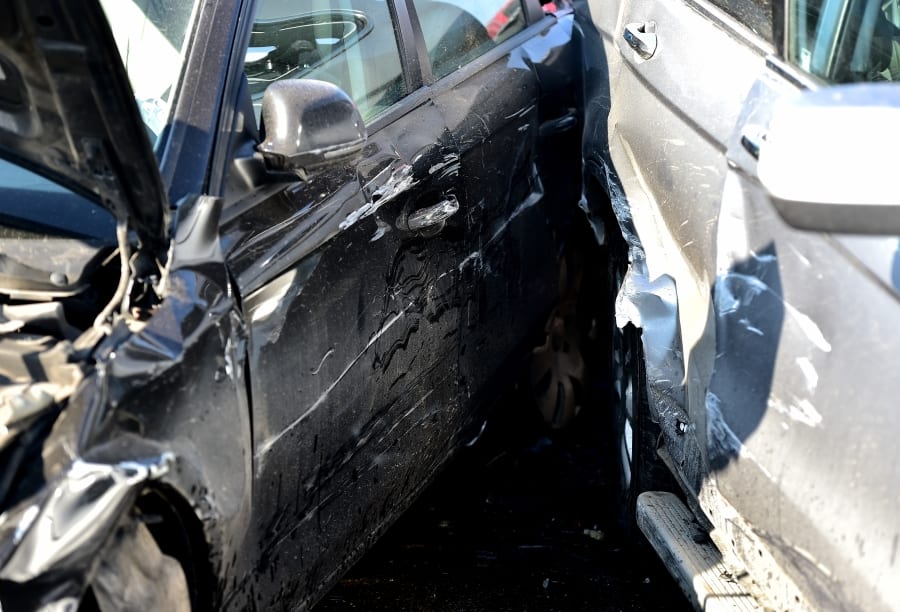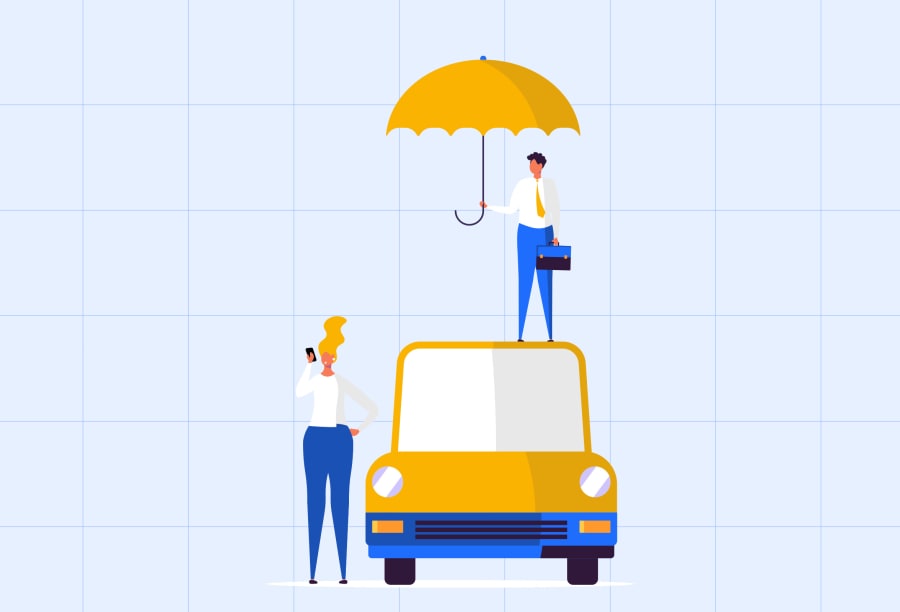Will a Parking Ticket Make My Car Insurance Rates Go Up?
Find Cheap Auto Insurance Quotes in Your Area
It's unlikely for a single parking ticket to affect your insurance rates, as long as you pay the ticket promptly. But if you leave it unpaid or let tickets pile up, you could see higher rates — among other financial consequences.
Do parking tickets go on your record or give you points?
Parking tickets don't go on your permanent driving record, and they alone can't affect your driving privileges. As long as you pay the bill promptly, there should be no other consequences. Parking violations won't add points to your record — they're no-point tickets — but you also can't reduce your existing points by paying your ticket.
When parking tickets can affect insurance rates
It's no surprise that auto insurance companies consider your driving record when setting rates. Convictions for traffic violations such as speeding, running a red light and DUI can all affect your bill.
Companies only consider moving violations or other actions that mean you're driving unsafely. Anything else, such as a parking ticket or excessive muffler noise, counts as a nonmoving violation and won't directly affect your insurance costs.
However, if you let one or more parking tickets go unpaid, there may be consequences that could up your insurance rates.
The good news is that public record information, which includes traffic and parking tickets, is no longer factored into your credit score. As a result, your credit-based insurance score can't be affected by parking tickets.
But not paying your parking tickets can affect insurance rates. Your unpaid parking ticket could be sent to a collections agency, where it is factored into your credit score and could increase your rates. If you live in one of the handful of states where it's illegal to factor credit scores into insurance rates, though, your parking ticket going to collections should not up your premiums.
Another possible consequence of unpaid parking tickets is having your car registration canceled. A registration suspension or cancellation alone could affect your insurance rates. But if you're caught driving while your registration is inactive, you'll almost definitely pay a fine and may even be arrested.
Even worse, in certain states, your driver's license may be suspended if you don't pay a ticket. This can spike insurance rates, since many states require you to file an SR-22 after a license suspension. SR-22 insurance is far more expensive than regular insurance, because it signals that you're a high-risk driver and more likely to file a claim.
Overdue tickets might cost you extra in a few other ways. Whether these apply to you depends on your state's laws and why you got the ticket. But these typically won't affect your insurance rates.
Other potential expenses resulting from overdue tickets:
- The amount of your fine may increase because of late fees.
- Your car may be booted or impounded.
- Your car may be sold at auction.
Keep in mind that parking tickets are tied to a car, not to the person driving it. If you loan your car to anyone, you'll be responsible for paying any ticket they get. "I wasn't driving" won't get the ticket removed. It'll up to you to pay the fine and ask the person who parked it illegally to reimburse you.
Private parking tickets aren't likely to raise insurance rates
Most of the time, parking tickets are issued by police officers. Owners of private property like shopping malls and college campuses issue parking tickets too. However, tickets you receive while parked on private property aren't always legally enforceable. The two main things private property owners can do are prevent you from parking on their property in the future and send your ticket to a collections agency.
Other possible consequences in a private lot are having a boot put on your car or having it towed. Either can cost you hundreds of dollars, so it's best to resolve tickets promptly if you want to keep parking there.
How to avoid getting a parking ticket
Parking tickets are annoying, but you can take steps to avoid getting them.
- Check the area around you before parking. Is there clear signage saying you cannot park there? Is parking restricted to certain hours? Always carefully read any signs around you before parking your car.
- Use a timer if there is a limit to how long you can park. Set a timer on your phone to remind yourself when your parking is about to expire, and build in some extra time to return to your car.
- Plan how you will pay ahead of time. If parking is paid by app, install the app before you leave. If you plan to pay with cash, be sure you have change to feed the meter. If you arrive and the meter is broken, find another parking spot. If there is nowhere else to park but that spot, take photos, so you can dispute the ticket if you receive one.
- Pay for a spot in a garage. Yes, garage parking is often more expensive, but it could be cheaper in the long run if you're constantly being ticketed when parked on the street.
If you believe you wrongly received a parking ticket, dispute it as soon as possible. Most local and state governments give you a window of two weeks to 30 days to initiate a dispute.
Leaving your ticket unpaid won't get you off the hook. If anything, you'll wind up paying more in late fees and — if your debt is sent to collections — insurance rates. Bring any photos you took to show that the parking ticket was given in error.
Frequently asked questions
What kinds of tickets affect your insurance?
There are two kinds of traffic tickets: moving and nonmoving violations. Tickets for moving violations, such as speeding, affect your insurance, because they're an indicator of how safely you drive. Tickets for nonmoving violations, such as parking, usually do not affect your rates.
Can you lose your license for parking tickets?
You cannot lose your license for parking tickets alone, no matter how many you accrue. However, in certain states, your driver's license can be revoked for failing to pay those parking tickets. Other states, such as New York, have laws that prevent you from losing your license over unpaid fines.
How can you tell if you have unpaid parking tickets?
Many states have an online system that allows you to enter your license plate number to see if you have any unpaid parking tickets. If you have one and can't afford to pay it, see if a payment plan is available. Be aware that if you choose to pay for your parking ticket via a payment plan, you may wind up paying more.
Lead Writer
Matt Timmons is a Lead Writer on the insurance team at ValuePenguin, where he writes in-depth and timely pieces helping find the right coverage for them.
He's covered insurance at ValuePenguin since 2018, specializing in auto and home insurance, as well as life insurance. He's paid special attention to the EV insurance market, where prices are much higher than for gas cars.
Before he started writing about personal finance, Matt wrote about professional skills and online tools at an e-learning company.
How insurance helped Matt
During freshman orientation in college, Matt's iPod was stolen off his table while he was eating lunch. Luckily, he'd bought a college insurance plan the day before and he had money to buy a replacement before classes started.
Expertise
- Auto insurance
- Home insurance
- Insurance rate analysis
- Life insurance
Referenced by
- CNBC
- Miami Herald
- Yahoo! Finance
Education
- BA, Wesleyan University
Editorial Note: The content of this article is based on the author's opinions and recommendations alone. It has not been previewed, commissioned or otherwise endorsed by any of our network partners.



